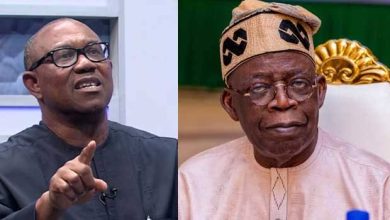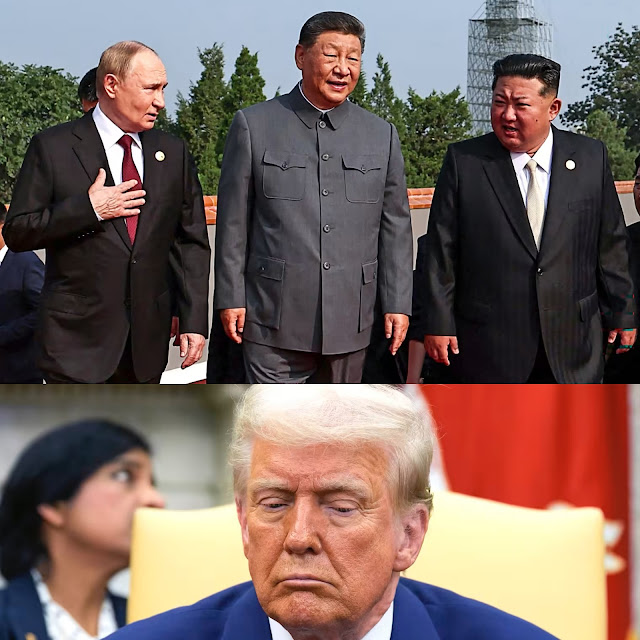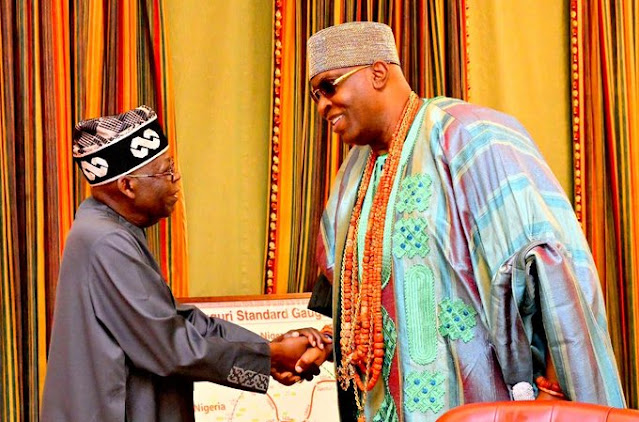On September 3, 2025, Peter Obi, the former presidential candidate of the Labour Party in the 2023 general election, issued a compelling call to President Bola Ahmed Tinubu, urging him to ensure that Nigeria’s reported revenue gains translate into tangible improvements in the lives of ordinary citizens. In a statement shared via his official social media platforms, Obi congratulated the President on achieving the country’s 2025 revenue target by August but emphasized that these fiscal milestones must be reflected in enhanced education, healthcare, infrastructure, and poverty alleviation efforts. His remarks come at a time when Nigeria is grappling with economic challenges, including high inflation, unemployment, and a cost-of-living crisis, prompting widespread debate about the effectiveness of the Tinubu administration’s economic policies. This article provides a detailed exploration of Obi’s statement, its implications, and the broader socio-economic and political context shaping Nigeria’s fiscal and developmental landscape.
The Context: Nigeria’s Revenue Surge and Economic Realities
President Tinubu’s announcement on September 2, 2025, during a meeting with The Buhari Organisation in Abuja, sparked significant attention when he declared that Nigeria had met its 2025 revenue target by August, effectively ending the nation’s reliance on borrowing to finance its budget. He stated, “We have met our revenue target. Nigeria is not borrowing again. Nobody is trading pieces of paper for exchange rate anymore. The naira is stabilising. What we need now is to build the infrastructure for export and import, to create jobs and opportunities for our people. That is my guarantee.” This claim was met with both optimism and skepticism, as Nigerians sought clarity on how these fiscal achievements would address the country’s pressing challenges.
The Presidency later clarified that Tinubu’s remarks referred specifically to non-oil revenue growth, with total collections reaching N20.59 trillion from January to August 2025, a 40.5% increase from the previous year. Non-oil revenues accounted for N15.69 trillion, or three-quarters of the total, driven by reforms in tax administration, digitalization, and compliance. The Nigerian Customs Service alone collected N3.68 trillion in the first half of 2025, surpassing its target by N390 billion. These figures reflect a significant shift in Nigeria’s fiscal landscape, reducing dependence on oil and aligning with Tinubu’s “Renewed Hope” agenda, which emphasizes economic diversification and fiscal discipline.
However, despite these achievements, Nigeria’s economic realities remain stark. The removal of fuel subsidies in May 2023 led to a tripling of petrol prices, contributing to a 35% rise in food prices and exacerbating a cost-of-living crisis. The naira’s floatation resulted in a depreciation to N1,800 per dollar in March 2024, though it stabilized at N1,525 by August 2025. Inflation remains high, and unemployment continues to affect millions, particularly young Nigerians. Public debt, while reduced from 90% of revenue in 2022 to under 40% in 2024, remains a concern, with the government seeking to increase the tax-to-GDP ratio from 10% to 18% by 2026. Against this backdrop, Obi’s call for tangible benefits from revenue gains resonates with a populace yearning for relief from economic hardships.
Peter Obi’s Statement: A Call for Accountability
In his statement, Peter Obi congratulated President Tinubu on the reported revenue milestone but stressed that fiscal achievements are meaningless without corresponding improvements in the lives of Nigerians. He argued that true economic stability cannot be measured solely by revenue figures announced at press briefings but by visible progress in critical sectors. “For the next four months, every value of our excess revenue should be deliberately channelled into health, education, and pulling people out of poverty,” Obi declared. “This must be done transparently, with verifiable and measurable outcomes. Anything less will mean that revenue growth has not translated into national growth.”
Obi’s remarks reflect his long-standing advocacy for data-driven governance and accountability. He highlighted the deplorable condition of public institutions, such as schools and hospitals, and noted that critical infrastructure projects remain underfunded, with contractors still owed significant sums. He also pointed to Nigeria’s dire socio-economic indicators, including its classification as one of the hungriest nations in the world, with millions unsure of their next meal. Obi’s call for transparency and measurable outcomes underscores the need for the government to demonstrate how increased revenues are being utilized to address these challenges.
This is not the first time Obi has challenged Tinubu’s economic narrative. In July 2025, he criticized the administration for relying on “manipulated data” to mask economic hardships, referencing Tinubu’s 2022 campaign remark, “Na statistics we go chop?” Obi argued that nearly two years into Tinubu’s term, the promise to put food on Nigerians’ tables remains unfulfilled, with hunger and poverty worsening. His latest statement builds on this critique, positioning him as a vocal advocate for policies that prioritize the welfare of ordinary citizens over abstract fiscal achievements.
The Political Dynamics: Obi vs. Tinubu
The exchange between Obi and Tinubu is emblematic of Nigeria’s polarized political landscape. Obi, a former governor of Anambra State and a prominent figure in the Labour Party, has emerged as a leading voice of opposition since his strong showing in the 2023 presidential election, where he secured 25% of the vote and won in Lagos, Tinubu’s political stronghold. His candidacy galvanized young and urban voters, earning him the nickname “Obidient” among his supporters. Despite losing to Tinubu, who was declared the winner with 37% of the vote, Obi’s influence remains significant, particularly as Nigeria approaches the 2027 elections.
Tinubu, a veteran politician and former governor of Lagos State, has faced intense scrutiny since assuming office in May 2023. His administration’s reforms, including fuel subsidy removal and naira floatation, have been praised for addressing structural economic issues but criticized for their immediate impact on living standards. The APC has defended Tinubu’s policies, citing achievements such as a N6.52 trillion trade surplus, a $20 billion economic influx, and foreign reserves of $34 billion. The Nigerian Stock Exchange’s All Share Index crossing 100,000 in 2025, with a 22.9% return on investment, has been hailed as evidence of economic progress. However, these metrics have done little to assuage public discontent over rising costs and unemployment.
Obi’s challenge to Tinubu taps into this discontent, positioning him as a champion of the masses. His emphasis on transparency and measurable outcomes resonates with Nigerians frustrated by perceived disconnects between government rhetoric and lived realities. The call for revenue gains to be channeled into health, education, and poverty alleviation aligns with Obi’s broader vision of governance, which prioritizes human development over political grandstanding.
Economic and Social Implications
The debate over Nigeria’s revenue gains highlights the complex interplay between fiscal policy and social welfare. The Presidency’s clarification that Tinubu’s claims focused on non-oil revenues underscores a strategic shift in Nigeria’s economic model. Historically, oil has accounted for over 70% of government revenue, making the country vulnerable to global price fluctuations. The 40.5% increase in non-oil revenues to N15.69 trillion in 2025 reflects the success of reforms such as digital tax platforms, customs service automation, and expanded compliance. These efforts have reduced Nigeria’s reliance on borrowing, with debt servicing dropping from nearly 100% of revenue in 2022 to under 40% in 2024.
However, the benefits of these reforms are yet to be felt by many Nigerians. The removal of fuel subsidies, while freeing up resources for infrastructure and social services, has driven inflation to over 30%, with food prices rising by 35%. The naira’s depreciation has increased the cost of imported goods, further straining household budgets. Unemployment, particularly among youths, remains a critical issue, with 33% of the workforce unemployed or underemployed in 2024, according to the Nigerian Bureau of Statistics.
Obi’s call for revenue allocation to health, education, and poverty alleviation addresses these challenges directly. Nigeria’s healthcare system is underfunded, with only 4.7% of the 2025 budget allocated to health, far below the World Health Organization’s recommended 15%. Public hospitals lack basic equipment, and millions lack access to affordable care. Education faces similar challenges, with over 10 million children out of school and public universities plagued by strikes and dilapidated infrastructure. Poverty levels have risen, with 63% of Nigerians living below the international poverty line in 2024, up from 40% in 2018.
The increased FAAC allocations, which surpassed N2 trillion monthly in July 2025, provide states with resources to address these issues. However, mismanagement and corruption at the state level have often undermined the impact of federal disbursements. Obi’s emphasis on transparency and verifiable outcomes reflects a broader demand for accountability in how these funds are utilized.
Broader Political Context
The exchange between Obi and Tinubu must be viewed within Nigeria’s broader political context. The 2023 election, marred by allegations of vote rigging and low voter turnout (27%), highlighted deep divisions in the country’s political landscape. Tinubu’s victory, with 8.79 million votes, was contested by both Obi and Atiku Abubakar, who argued that the election was neither free nor fair. Legal challenges to the results were unsuccessful, but the controversy has fueled ongoing debates about electoral integrity and governance.
The formation of a powerful opposition coalition under the African Democratic Congress (ADC), including figures like Atiku, Obi, Rotimi Amaechi, and Nasir El-Rufai, signals a concerted effort to challenge the APC in 2027. Obi’s vocal critiques of Tinubu’s policies position him as a key figure in this coalition, appealing to voters disillusioned with the status quo. His focus on data-driven governance and social welfare contrasts with Tinubu’s emphasis on macroeconomic reforms, setting the stage for a heated political contest.
The North East Governors’ Forum’s recent meeting with Tinubu, where they commended his counter-insurgency efforts and called for infrastructure investments, reflects the administration’s efforts to consolidate support in key regions. However, divisions among northern leaders, with groups like the League of Northern Democrats opposing Tinubu’s re-election, suggest that the President faces a complex political landscape.
Challenges and Opportunities
Obi’s challenge to Tinubu highlights both the opportunities and challenges of Nigeria’s economic reforms. The growth in non-oil revenues offers a chance to fund transformative investments in infrastructure, healthcare, and education. The N54.99 trillion “Budget of Restoration” signed in February 2025 prioritizes infrastructure, with projects like the 700-kilometer Lagos-Calabar coastal highway aimed at boosting trade and job creation. The administration’s focus on agriculture, technology, and manufacturing could further diversify the economy, creating opportunities for millions of Nigerians.
However, several challenges must be addressed to realize these opportunities:
Public Trust: Restoring confidence in government institutions is critical. Obi’s call for transparency resonates with a populace skeptical of official narratives, particularly given past instances of mismanaged funds.
Economic Hardships: Addressing inflation, unemployment, and the cost-of-living crisis is essential to maintaining public support. The government must balance fiscal reforms with social safety nets to cushion the impact on vulnerable populations.
Infrastructure Deficits: While revenue gains provide resources for infrastructure, inefficiencies in project implementation and corruption pose risks. Ensuring timely completion of projects like those highlighted by the North East governors is crucial.
Political Polarization: The growing opposition coalition and regional divisions could undermine Tinubu’s agenda. Engaging with stakeholders across the political spectrum will be key to fostering national unity.
The Road Ahead
As Nigeria navigates its economic and political challenges, the Tinubu administration must demonstrate that its revenue gains translate into meaningful progress. Obi’s call for verifiable outcomes sets a high standard for accountability, challenging the government to prioritize human development over abstract metrics. The next four months, as Obi suggested, offer a critical window to channel excess revenues into health, education, and poverty alleviation, potentially reshaping public perceptions of the administration’s performance.
The government’s ability to deliver on its promises will depend on effective implementation, transparent governance, and collaboration with state and local authorities. The record FAAC allocations provide an opportunity for subnational governments to address local needs, but their success will hinge on prudent financial management. Engaging with civil society, the private sector, and international partners can further enhance the impact of these revenues.
For Obi, his statement reinforces his role as a leading opposition voice, holding the government accountable while articulating a vision for inclusive governance. As the 2027 elections approach, his critiques will likely shape the opposition’s narrative, appealing to Nigerians seeking change. For Tinubu, the challenge is to bridge the gap between fiscal achievements and tangible benefits, ensuring that Nigeria’s rising revenues lead to a brighter future for all citizens.
Conclusion
Peter Obi’s call for President Tinubu to demonstrate the tangible benefits of Nigeria’s rising revenues underscores a critical juncture in the country’s economic and political journey. The administration’s success in achieving a N20.59 trillion revenue haul by August 2025, driven by non-oil sources, marks a significant milestone in economic diversification. However, the persistent challenges of poverty, unemployment, and inadequate public services highlight the need for these gains to translate into real improvements.
Obi’s emphasis on transparency and measurable outcomes reflects the aspirations of millions of Nigerians who seek a government that prioritizes their welfare. As Tinubu navigates the complexities of governance, his ability to address these concerns will determine his administration’s legacy. The coming months will be pivotal, as Nigeria strives to transform its fiscal achievements into a foundation for sustainable development and national prosperity.






